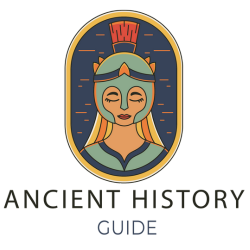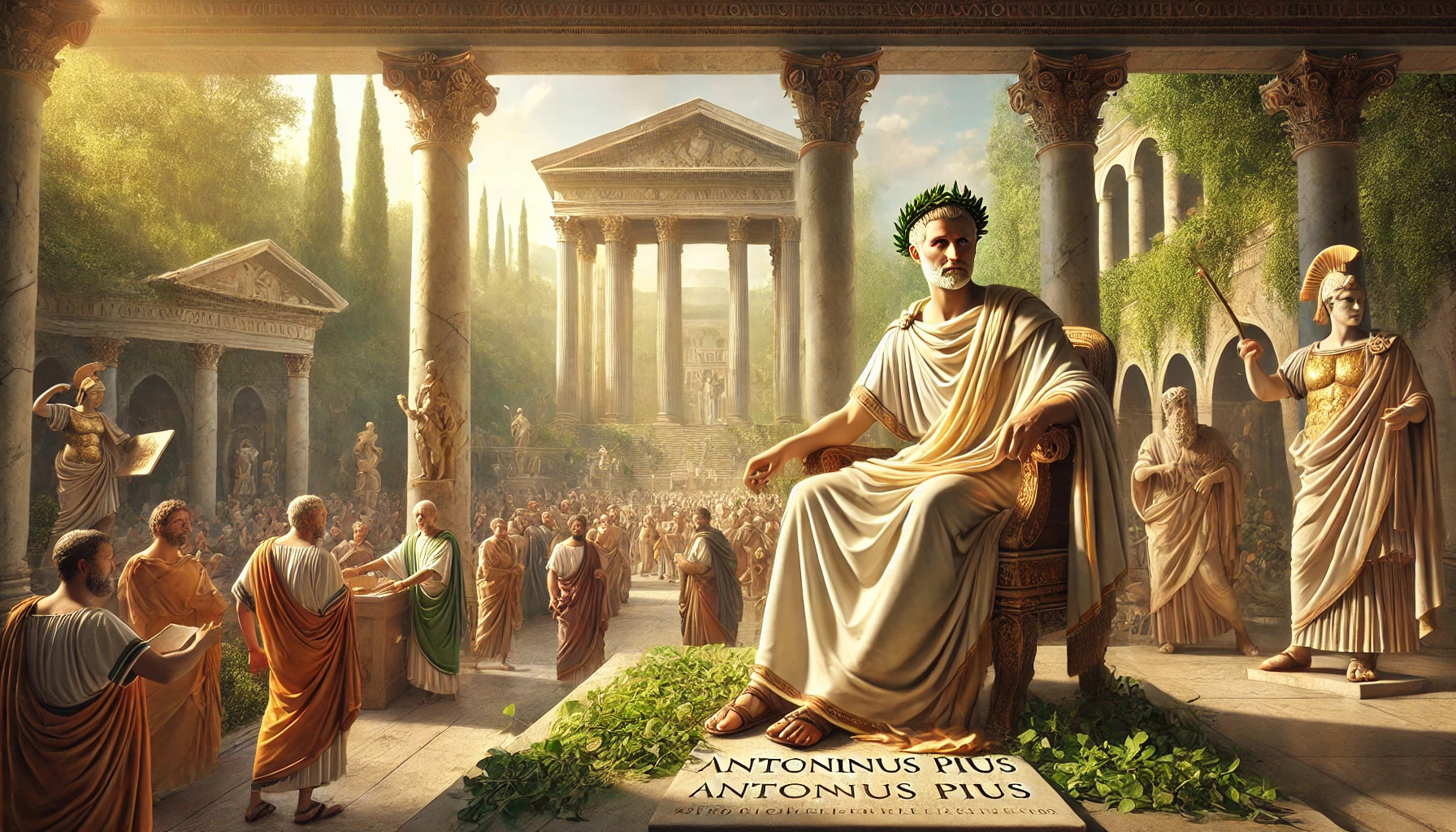Antoninus Pius is often remembered as one of the most effective Roman emperors. His reign from AD 138 to 161 was marked by peace and stability, allowing the Roman Empire to flourish without significant wars. Unlike many of his predecessors, he prioritized diplomacy over conflict, earning him the title of the “Peaceful Emperor.”
Born into an aristocratic family, Antoninus Pius rose through the ranks and became a respected leader. He focused on administrative reforms and cultural support, which helped improve the lives of ordinary citizens. His leadership during a time known as the Pax Romana showcased his commitment to maintaining the empire’s harmony.
Readers will discover how Antoninus Pius navigated challenges while ensuring prosperity for his people. His approach to governance offers valuable lessons about the power of peace in leadership and the importance of community.
Early Life of Antoninus Pius
Antoninus Pius was born on September 19, AD 86, in Lanuvium, a town near Rome. He came from a respected senatorial family. This background gave him opportunities for a good education and early roles in public service.
From a young age, Antoninus showed promise and talent. His family had roots in southern Gaul, specifically the city of Nemausus (modern-day Nîmes). This heritage helped shape his identity and connections in Roman society.
Throughout his youth, he held various important positions within the Roman government. His experiences prepared him for future leadership as emperor. Antoninus gained valuable insights into the workings of the empire and its people.
His early life was marked by a commitment to duty and excellence. He learned the skills needed to operate effectively in politics. These qualities distinguished him as a capable leader from the beginning of his career.
His rise was supported by important figures, including Emperor Hadrian. When Hadrian adopted him, it set the stage for his future as a ruler. Antoninus Pius would go on to lead during one of Rome’s most peaceful and prosperous periods.
Ascension to the Throne
Antoninus Pius’s rise to the throne is marked by his close relationship with Emperor Hadrian. His adoption by Hadrian and the supportive environment provided by the previous emperor played crucial roles in his path to power.
Adoption by Hadrian
In 138 CE, Antoninus Pius was adopted by Emperor Hadrian. This decision was significant, as Hadrian recognized Antoninus’s potential for leadership. Antoninus was seen as a capable general and administrator, making him a suitable heir. Hadrian’s adoption came with some conditions, including that Antoninus would adopt Hadrian’s chosen successor, Marcus Aurelius.
Prospering under Emperor Hadrian
During Hadrian’s reign, Antoninus thrived. He served as an important advisor and general, contributing to various military campaigns. His administrative skills helped maintain peace within the empire. He was respected in Hadrian’s court and gained valuable experience that prepared him for eventual rule. Antoninus’s time with Hadrian also established strong connections among the elite, ensuring political support when he became emperor.
Becoming Emperor
After Hadrian’s death on July 10, 138 CE, Antoninus ascended to the throne. His transition to power was smooth, reflecting careful planning by Hadrian. Antoninus took on the title of emperor and ruled with a focus on peace and stability. He was known for his diplomatic approach, ensuring harmonious relations within the empire. His reign, which lasted until 161 CE, is celebrated for its lack of major conflicts, showcasing his effective leadership.
His Reign as Emperor
Antoninus Pius ruled from 138 to 161 AD, making significant impacts on Roman society during his time. His leadership is marked by a focus on justice, economic growth, military stability, and infrastructure improvement.
The Administration of Justice
Antoninus Pius prioritized fairness in the legal system. He was known for his commitment to justice, ensuring that laws were applied equally to all citizens. Under his rule, the legal processes became more structured, with an emphasis on protecting the rights of individuals.
He introduced reforms that aimed to reduce corruption among officials. His decisions were often based on moral and ethical considerations. Antoninus believed that a just society would lead to greater stability and prosperity for the empire.
Economic Policies
Antoninus Pius implemented effective economic policies that enhanced trade and commerce. During his reign, the empire experienced steady economic growth. He encouraged agriculture by supporting farmers and ensuring they had the resources needed to thrive.
The emperor also focused on managing taxes fairly to avoid burdening the populace. He promoted welfare projects that helped citizens in need, which contributed to a more stable economy. These efforts resulted in improved living standards for many Romans.
Military Stance and Peace
Unlike many of his predecessors, Antoninus Pius preferred diplomacy over military action. He believed that maintaining peace was essential for the empire’s growth. His strategy involved strengthening borders and avoiding unnecessary conflicts.
He chose to keep a strong military presence without engaging in aggressive warfare. This approach allowed him to maintain stability during his reign. As a result, his period is often referred to as one of the most peaceful in Roman history.
Infrastructure and Public Works
Under Antoninus Pius, significant investments were made in infrastructure and public works. He recognized that a well-developed empire required efficient roads, aqueducts, and public buildings. This focus on infrastructure helped improve trade and communication throughout the empire.
He supported the construction of temples, libraries, and other public facilities. These projects not only enhanced daily life for citizens but also showcased the might of Rome. His efforts contributed to the long-lasting legacy of Roman engineering and architecture.
Antoninus Pius’ Approach to Governance
Antoninus Pius is known for his calm and effective style of governance. He emphasized strong relationships with key political bodies, introduced legal reforms, and promoted civic involvement among citizens.
Relationship with the Senate
Antoninus Pius maintained a positive and cooperative relationship with the Senate. He respected their authority and sought their advice on important matters. Unlike some emperors who ruled with an iron fist, he preferred to work alongside the Senate, which led to greater stability in the empire.
This approach fostered loyalty and trust between the emperor and the Senate. Antoninus understood that collaboration could lead to better governance. His willingness to share power helped ensure peace during his reign.
Legal Reforms
Legal reforms were a significant part of Antoninus Pius’ governance. He focused on creating fair laws and ensuring justice for all citizens. His legal changes were aimed at streamlining processes and making the law more accessible.
For instance, he prohibited the use of torture in legal proceedings, which was a progressive move for that time. This reform emphasized fairness and human rights. Such changes helped transform the legal system, making it more efficient and just.
Civic Engagement
Civic engagement was another key area during Antoninus Pius’ rule. He believed in the importance of involving citizens in community affairs. Programs for public welfare and support for education were prioritized.
Antoninus also encouraged local governments to participate actively. His administration funded building projects, such as temples and public baths, enhancing the quality of life. Through these efforts, he aimed to create a sense of community and responsibility among citizens.
Private Life and Personality
Antoninus Pius is remembered not only for his rule but also for his personal life and character. His family ties, philosophical beliefs, and personal interests shaped who he was as an emperor and as a person.
Family and Heirs
Antoninus was married to Faustina the Elder for nearly 30 years. Their marriage was marked by deep affection and partnership. After Faustina’s death in 140 CE, he honored her memory by minting coins and erecting statues in her name.
Antoninus and Faustina had several children. However, many of their children did not survive to adulthood. His only surviving daughter, Faustina the Younger, later married Marcus Aurelius, who would become his successor.
Philosophical Influences
Antoninus Pius was influenced by Stoic philosophy, which emphasized virtue and moral integrity. This belief system guided his decisions and how he treated his subjects. He was known for being fair and just, fostering a peaceful society.
His philosophical outlook also contributed to his reputation as a kind ruler. He often valued reason over emotion in his governance, aiming for stability and harmony within the empire.
Personal Interests
In his private life, Antoninus had various interests that depicted his character. He enjoyed architecture and was responsible for several public works. His contributions included the rebuilding of temples and roads, which improved the infrastructure of Rome.
Antoninus was also an avid participant in the cultural life of Rome. He attended games, theater performances, and other public events. His personal engagement in these activities demonstrated his commitment to his people and their welfare.
Cultural and Religious Contributions
Antoninus Pius made significant impacts in cultural and religious areas during his reign. He promoted the arts and supported religious tolerance, allowing diverse beliefs to flourish.
Promotion of Arts
Under Antoninus Pius, the arts thrived. He encouraged sculptures, architecture, and literature, enriching Roman culture. Many public buildings were constructed, showcasing impressive architectural styles.
He also supported artists and writers, offering them opportunities to display their talents. This period saw the creation of beautiful public monuments, including temples and forums. These works not only beautified cities but also celebrated Roman achievements.
Pius’s emphasis on education contributed to a more informed society. Schools flourished, promoting learning for many. His affection for culture helped shape a vibrant artistic atmosphere that benefited future generations.
Religious Tolerances
Antoninus Pius is noted for his policy of religious tolerance. He allowed people to practice various religions freely without fear of persecution. This approach created a peaceful coexistence among different belief systems across the empire.
He respected local customs and traditions, which helped maintain stability. His leadership encouraged dialogue between different religious groups. This openness was crucial at a time when many cultures were merging within the expanding empire.
By fostering an environment of acceptance, he ensured that diverse spiritual practices could thrive side by side. This made the Roman Empire a more harmonious place during his reign.
His Death and Succession
Antoninus Pius had a long and peaceful reign as Roman Emperor. His final days and the events surrounding his death had lasting impacts on Roman leadership and culture.
Final Days
In the later years of his life, Antoninus Pius enjoyed good health and stability in the empire. He ruled from AD 138 until his death on March 7, 161. During his final days, he remained focused on his duties, continuing to oversee administrative reforms and support for the arts.
Despite his peaceful nature, Antoninus faced some challenges. He had to address the growing threats from tribes along the borders of the empire. Yet, he managed to maintain harmony in Rome and did not leave Italy throughout his reign.
Legacy and Deification
After Antoninus Pius passed away, he was remembered for his dedication to peace and prosperity. His reign is often praised as one of the most stable periods in Roman history.
He was succeeded by his adopted son, Marcus Aurelius, who followed in his footsteps. Shortly after his death, Antoninus was deified by the Roman Senate, a sign of respect and admiration. This practice was common for influential emperors, and it highlighted his lasting legacy in Roman culture. Antoninus Pius is often regarded as one of the “Five Good Emperors,” a title that reflects his reputation for wise governance.

